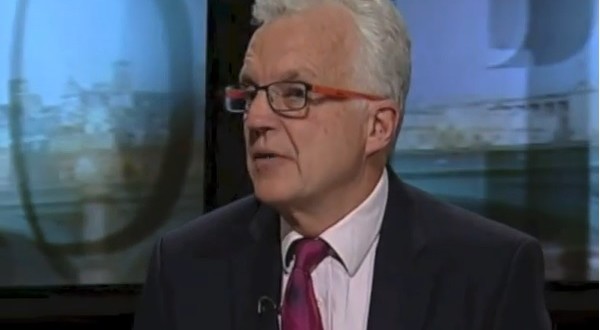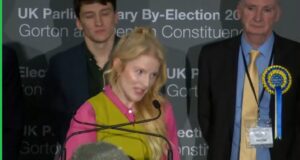We’re used to driver-less trains in Tower Hamlets. Ever since the Queen came to open the Docklands Light Railway (DLR), we’ve had trains criss-crossing the Borough with only their train captains to guide them and respond to little emergencies.
Some months ago, before he was re-elected Mayor of London, Boris Johnson promised to progress the DLR model. He promised that when it came to buying new trains for the Tube, he would buy trains which did not have drivers’ cabs at the front. He conceded that there would still need to be staff on the trains and indicated that although the trains would no longer need drivers, they would have “train captains” to help tourists and deal with safety issues and take over in case of emergency.
Other than Mayor Johnson’s own Conservative Party, virtually every political party opposed the move. However, Boris knew that the major opposition to a move to driverless trains would come from the trade unions. He therefore proposed that there be changes in the law to make it impossible for the Tube’s trade unions to take strike action – in an echo of the Thatcherite doctrine of “if they are going to disagree with you, abolish them.”
Earlier this year, Boris did indeed approve plans to buy some trains without drivers’ cabs, so the battle lines are drawn. One of the first people to respond to the battle cry has been Christian Wolmar, a former transport journalist who is campaigning to be adopted as Labour’s candidate for London Mayor. Wolmar admits that many Tube trains are already driven remotely and that the “drivers” who occupy the cabs are there to respond to emergencies. However, he wants to see driveres’ cabs remain as a place to put the staff he believes must be on the trains, no matter what they do there.
What Wolmar thinks may or may not be relevant. Although he says he is the only person who has formally declared that they want to be Labour’s candidate for mayor, it is quite clear that there are many others in the wings. So far it is thought that Eddie Izzard is looking for the Labour ticket to help him become a celebrity mayor. Sadiq Khan MP, who is coming to the end of his second term of office as Tooting’s MP, is thought to have the backing of the Labour establishment. Khan was in charge of Labour’s campaign for the elections in London last May, which were largely very successful for Labour (except in Tower Hamlets) – though whether this success was because of or despite Khan’s management is not clear. Meanwhile the left is lobbying Diane Abbot MP to stand.
The twist is that Labour is likely to have an open primary to choose their candidate – that is, a set of meetings which are open to the public, rather than just members of its own party. Wolmar has little leverage in the Party or with the public and he is unlikely to beat any of the other possible candidates. Although he has spoken often and at length and in detail on transport, Wolmar has not made clear what his other policy priorities are – or, really, shown any qualities which suggest he could take decisions across a wide range of policies quickly and within a political framework voters could have confidence in.
Wolmar’s skill may be in that by putting his name forward and spending several months more campaigning than any other candidate has, he will be able to negotiate himself a position with responsibility for transport. If that does happen, perhaps there is hope that Labour may reverse Boris’s attack on Tube safety.
 East London News A Force for the community…
East London News A Force for the community…




